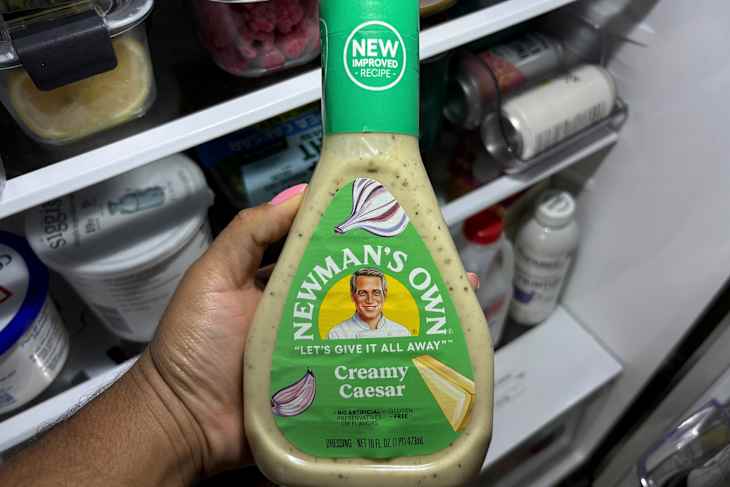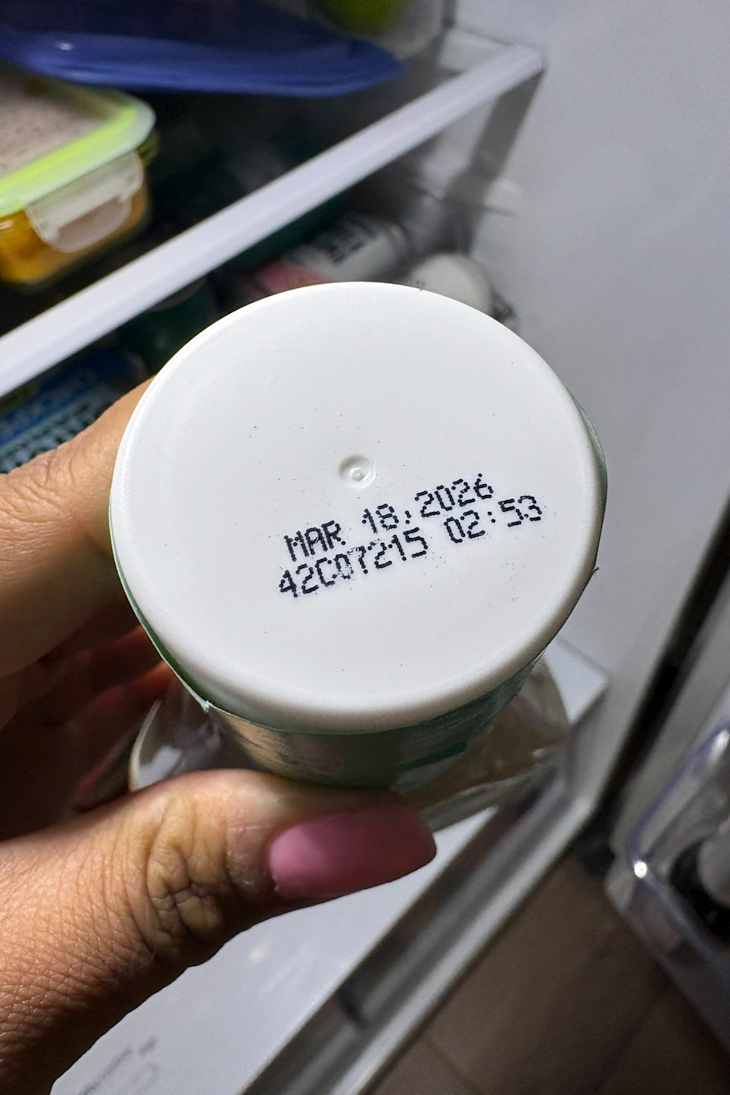

Salad dressing is one of those items I buy and tend to forget about. I’ve been known to pick up salad dressing at the store, only to discover that I already had a bottle in my fridge door. (Honestly, anything stored in my fridge door seems to get forgotten easily.)
I’ve also come back to my once-favorite balsamic vinaigrette, only to find that it’s gone past its expiration date — and I wondered if it was still safe to consume. While nothing about the dressing seemed off visually, I decided to err on the side of caution and toss the bottle.
To avoid this kind of waste again, I wanted to find the solution once and for all. I reached out to Dr. Donald W. Schaffner, professor and chair of the Department of Food Science at Rutgers University and extension specialist in Food Science, and what he had to say actually shocked me.
So How Long Are Salad Dressings Safe to Consume?
The short answer is a very long time. “Salad dressings are among the most stable and safe food products on the market these days,” Dr. Schaffner says. “Salad dressing manufacturers do tests to ensure that any pathogens that might be present at the time of manufacture will be inactivated within a matter of days in most cases.” In other words, the ingredients in bottled salad dressing can cause unwanted bacteria to die. Most salad dressings are quite acidic, which isn’t a great environment for bacteria to live; thus, they can’t thrive under those conditions.

Even if salad dressing is technically past its best by date, it still may be safe to consume. In fact, instead of worrying about bacteria that can cause a foodborne illness, what you need to be more concerned about with salad dressing over time is the quality of the product.
“The shelf lives for these products are strictly based on quality. If you consume past its best by date, the worst that can happen is you’ll be disappointed with the quality, and it might ruin a perfectly good salad,” Dr. Schaffner says. So you can likely keep your salad dressing well past the expiration date. In fact, “the older they are, the safer they are! They just get safer and safer!” The bad part? “They also start to develop quality defects (bad flavors, etc.) the longer they sit,” he says.
How quickly the salad dressing will go rancid depends on the type of dressing, which makes it difficult to provide a set timeline across the board due to variation in brand, manufacturer, and formulation. But the bottom line is, for the most part you’ll be safe — the quality may just diminish.
I was also curious to learn if a creamy dressing like Caesar or ranch would go bad more quickly than an oil-based dressing like balsamic vinaigrette. Dr. Schaffner says, “The type of quality defects might be different between oil-based dressing/vinaigrette vs. a creamy one, and the manufacturers might set different shelf lives based on the studies that they’ve done on product quality. But the bottom-line answer is the same — no risk of food poisoning, only risk of poor-quality food.”
Overall, your best bet is to use your senses. If your salad dressing has a rancid smell, odds are you don’t want to pour it all over your salad — the same goes for if you see mold growth. But if it smells, tastes, and looks fine, it’s probably perfectly safe to eat.